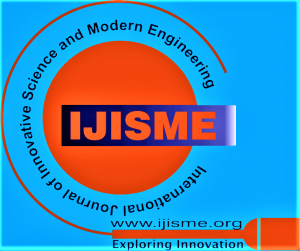![]()
Application of Value Management in Conception of Construction Projects in Rwanda
Rwamuhinda Dick1, Abednego O. Gwaya2, Githae Wanyona3
1Dick Rwamuhinda, Department of Construction Management, Jomo Kenyatta University of Agriculture and Technology, Nairobi, Kenya.
2Dr. Abednego O. Gwaya, Department of Construction Management, Jomo Kenyatta University of Agriculture and Technology, Nairobi, Kenya.
3Dr. Githae Wanyona, Department of Construction Management, Jomo Kenyatta University of Agriculture and Technology, Nairobi, Kenya.
Manuscript received on October 02, 2019. | Revised Manuscript received on October 09, 2019. | Manuscript published on October 15, 2019. | PP: 1-6 | Volume-6, Issue-3, October 2019. | Retrieval Number: C1155106319/2019©BEIESP | DOI: 10.35940/ijisme.C1155.106319
Open Access | Ethics and Policies | Cite
© The Authors. Published By: Blue Eyes Intelligence Engineering and Sciences Publication (BEIESP). This is an open access article under the CC BY-NC-ND license (http://creativecommons.org/licenses/by-nc-nd/4.0/)
Abstract: Value Management (VM) and Value Engineering (VE) are techniques concerned with defining, maximizing and achieving “value for money”. It should be noted that VM is not about reducing the cost but about adding value and where necessary the cost can be added to achieve value. Despite its proven significance in securing maximum output from limited resources, this approach is not a common practice in Rwanda’s construction Industry. This study therefore defines VM and describes all the processes and techniques involved in it. The merits and demerits of VM process in construction projects are discussed in details and relevance of its uses is discussed and recommended in consideration of the scope and complexity of the projects as well as the risks involved. While the benefits of a value management review are often perceived in terms of improved quality and reduced cost, this report discusses the exercise as a functional mechanism to measure value, taking into account monetary and non-monetary benefits and thus demonstrating value for money. While the author has not been able to obtain relevant literature on VM practice in Rwanda, It can be deduced from the review of the related literature that most of the evaluation techniques conducted for construction projects in developing world have mostly relied on evaluation of project performance in terms of cost, quality, delivery and progress. Since project evaluation is carried out after the work has been undertaken, the output of the analysis will just give the client an indication or a good understanding of the project performance. Such evaluations only reveal the competence or incompetence of the project participants instead of providing value for money which is addressed by VM practice which is an ex-ante analysis that takes into consideration of all value parameters. The study used a quantitative survey method of research to obtain responses from professional practitioners in construction industry in Rwanda. The sample size of 115 were selected from members of professional practitioners in the construction industry out of which 106 members were responsive. Finally, it is concluded that VM approach is not used in construction industry in Rwanda and recommended that VM practice be adopted in construction industry in Rwanda as a mandatory requirement for conception of all construction projects with a budget of $20M and above.
Keywords: Conception of construction projects, Construction projects, value engineering, value management.
